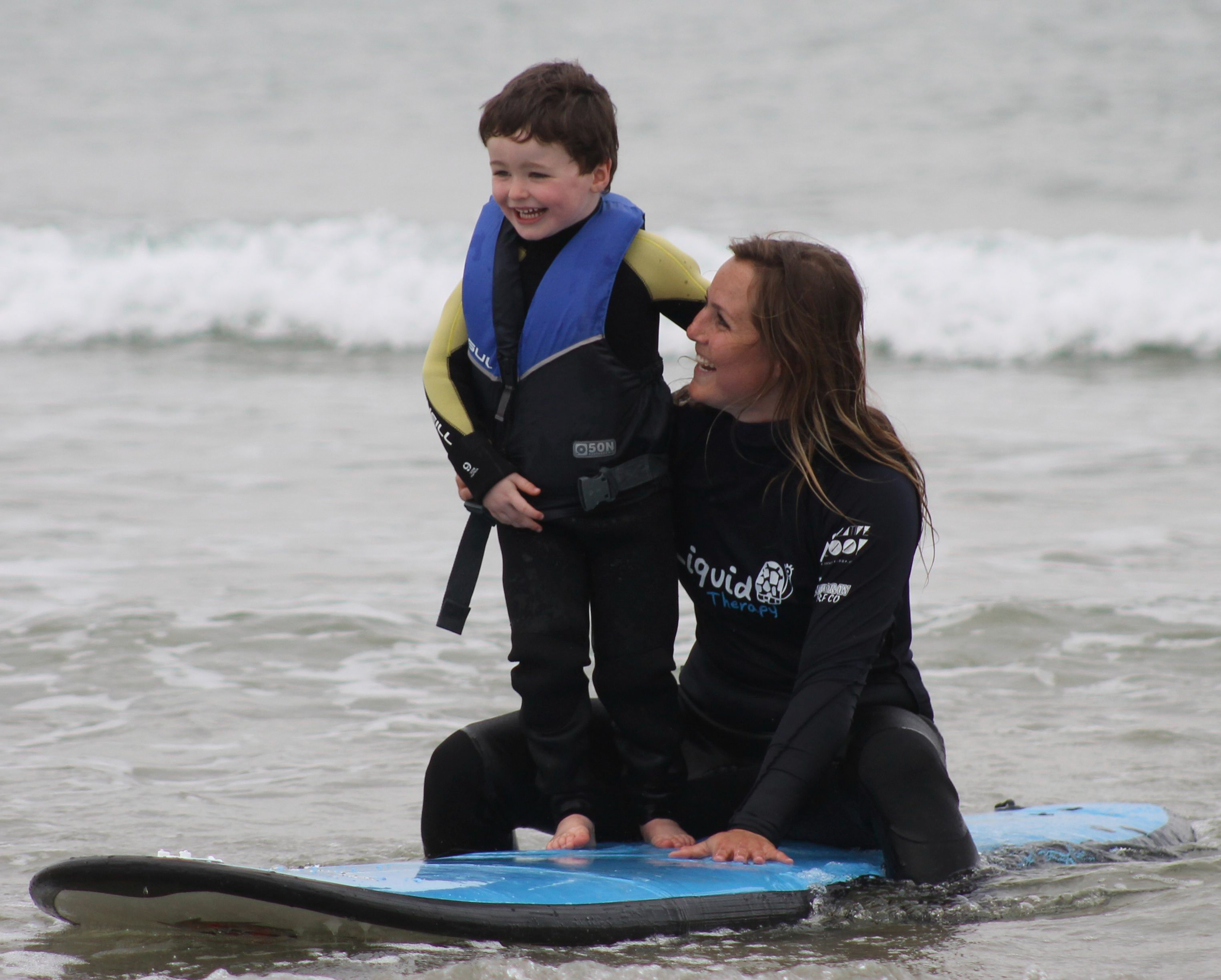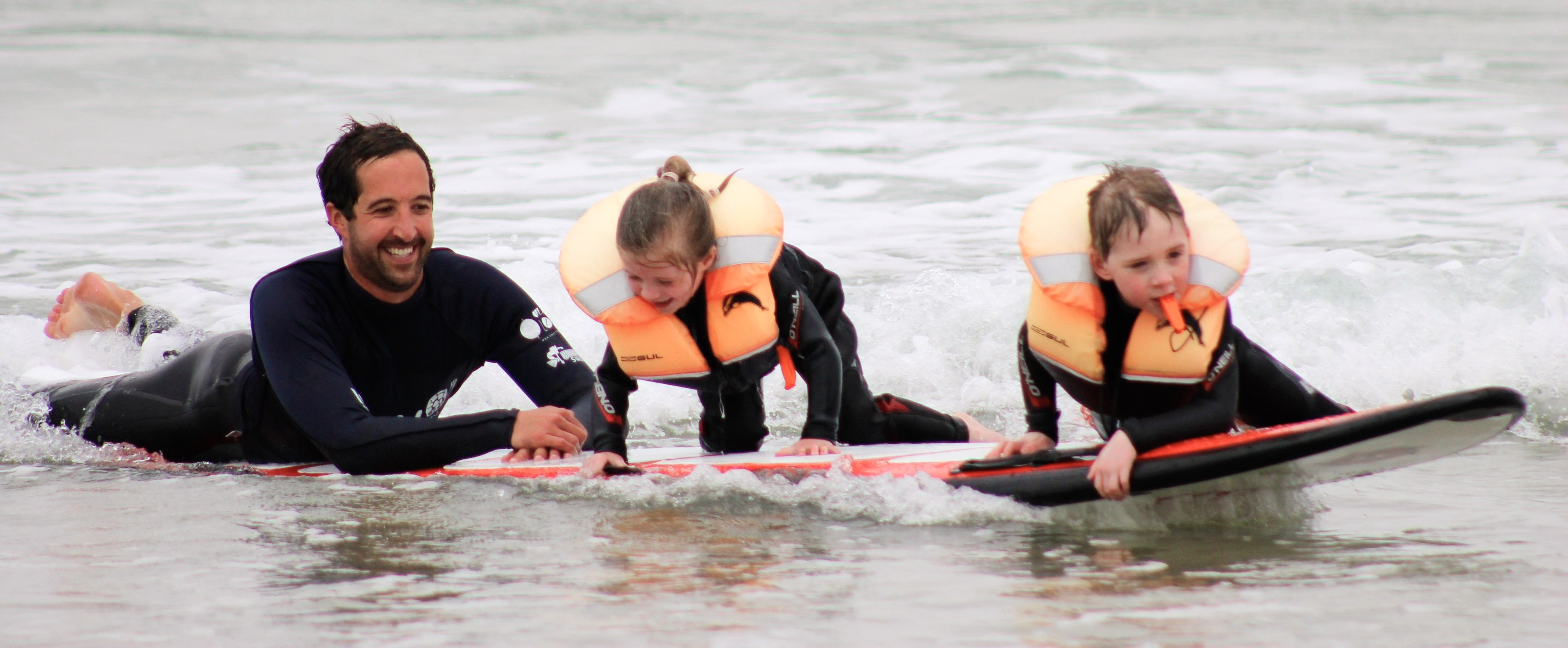Surf as hydrotherapy, or water therapy, has been proven to benefit to a variety of people including those affected by autism, limited physical mobility or behavioral problems. Multiple surf therapy initiatives around the world have been hugely successful.
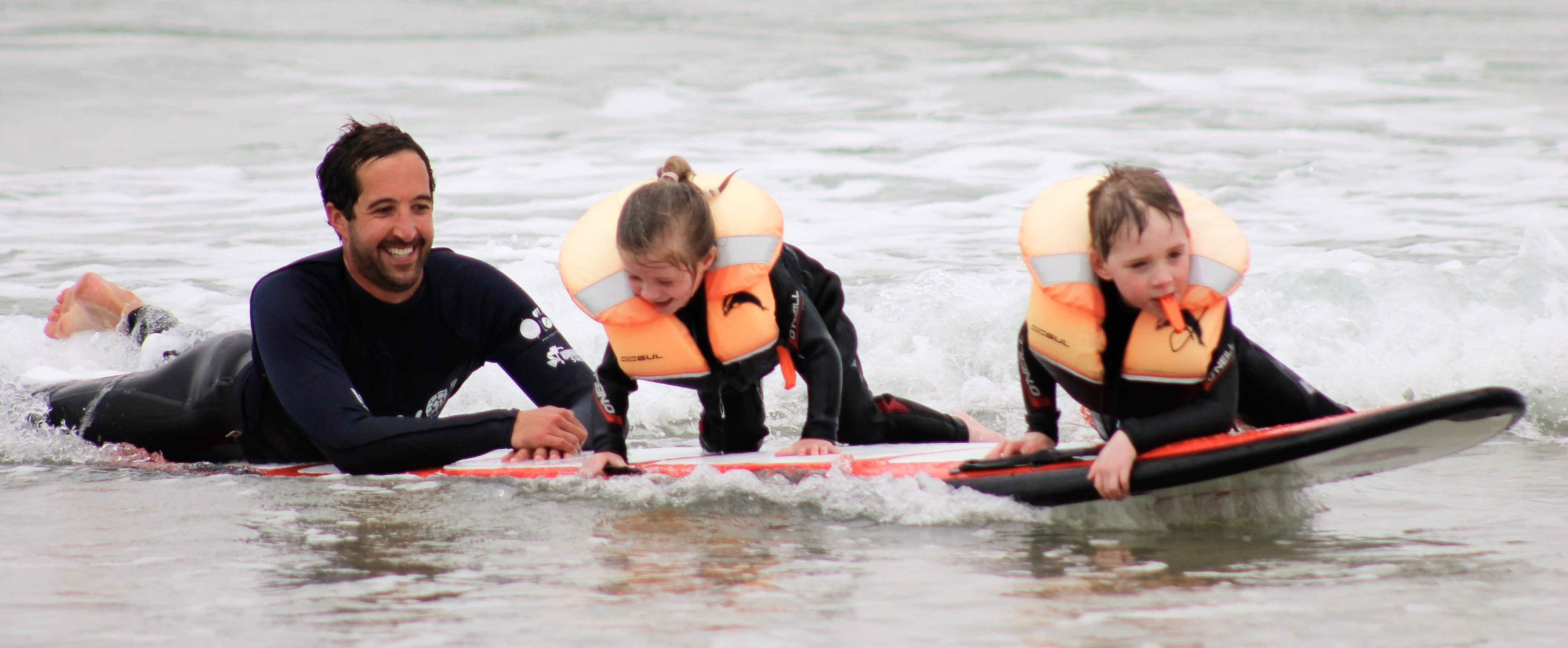 For the volunteers that make these surf therapy camps possible, reward comes in the form of the smiles on the participants face’s -at first discrete, later stretching from ear to ear, beaming their joy. Similarly, the family members express their profound gratitude for the huge changes that these camps can make, with the benefits lasting far beyond the session or the surf camp week.
For the volunteers that make these surf therapy camps possible, reward comes in the form of the smiles on the participants face’s -at first discrete, later stretching from ear to ear, beaming their joy. Similarly, the family members express their profound gratitude for the huge changes that these camps can make, with the benefits lasting far beyond the session or the surf camp week.
Having volunteered at several surf camps with Surf2Heal, the first non-profit organization that began offering surf therapy in Ireland in 2008, we got in touch with Tom Losey of Liquid Therapy, also on the Emerald Isle, to learn more about this organization.
We met Tom at a popular pub in Bundoran, one of the Irish surf meccas, and we set off with a few laughs, after realizing we’ve been waiting at the bar not noticing each other. The founder of Liquid Therapy’s look and gestures convey goodness all-around, which is confirmed as soon as he pronounces his first words. Friendly, easy to talk to, and passionate about his work, time flies and the interview goes on far longer than we’d planned.
* * *
How did everything start?
When I first moved here, I used to manage Surf Co. Surf School in Bundoran –they have a shop, surf school and hostel. After a few years I moved to New Zealand planning to stay there, but came back here and started working as a manager in Waterworld. I also was the coach for the swimming club at the Ballyshannon Leisure Centre. I had a few kids with additional needs in my groups and since I had experience working with with children in the autism spectrum from volunteering in California with an organization that offered surf therapy, I was able to help them in the pool and their families were very pleased. They knew I was a surf instructor and started to ask me if I could take their kids out surfing.
It worked out really well. I’d take one kid at a time and not only I could see the incredible impact surf has on them, but the families too were extremely happy. Those kids relax in the water and as a result they are more gentle outside the water and sleep better than night.
They can overcome fears too, like this little 3 year-old boy who couldn’t be anywhere near sand before doing our sessions (I’d carry him in my arms from the parking area to the water) and now the whole family enjoys sun holidays at the beach because he doesn’t mind the sand any more.
Tell us about the evolution of Liquid Therapy’s scope.
It’s grown very organically in every aspect. At first it was only me, and then just two or three more volunteers, so we never chose to advertise ourselves. We want to offer the best possible experience to those who really feel it’ll be good for them, rather than trying to convince someone that this is good for them and they might not be fully committed (this applies to both volunteers and families.) We’ve also never charged families for the service; we rely on volunteers and financial help we get from here and there, which differs every year.
We started focusing on kids in the autism spectrum but we’ve widened our scope over time, as families in other situations have come to us. Every year we have people with conditions I’ve never heard of or in different life situations. I do some research and get to know the families –every kid who wouldn’t be able to receive mainstream surf lessons can benefit from this.
Tell us a bit more about the aspects you highlight on the website: Fun, Personal development and Therapy.
We focus on Fun, Personal development and Therapy. Surfing should always be fun, that should be at the core of any child led activity. Personal development enables us to focus on the needs of each individual. Letting their abilities lead the session! Therapy! We all need therapy so letting each surf session provide a break from life’s physical demands and emotional strains.
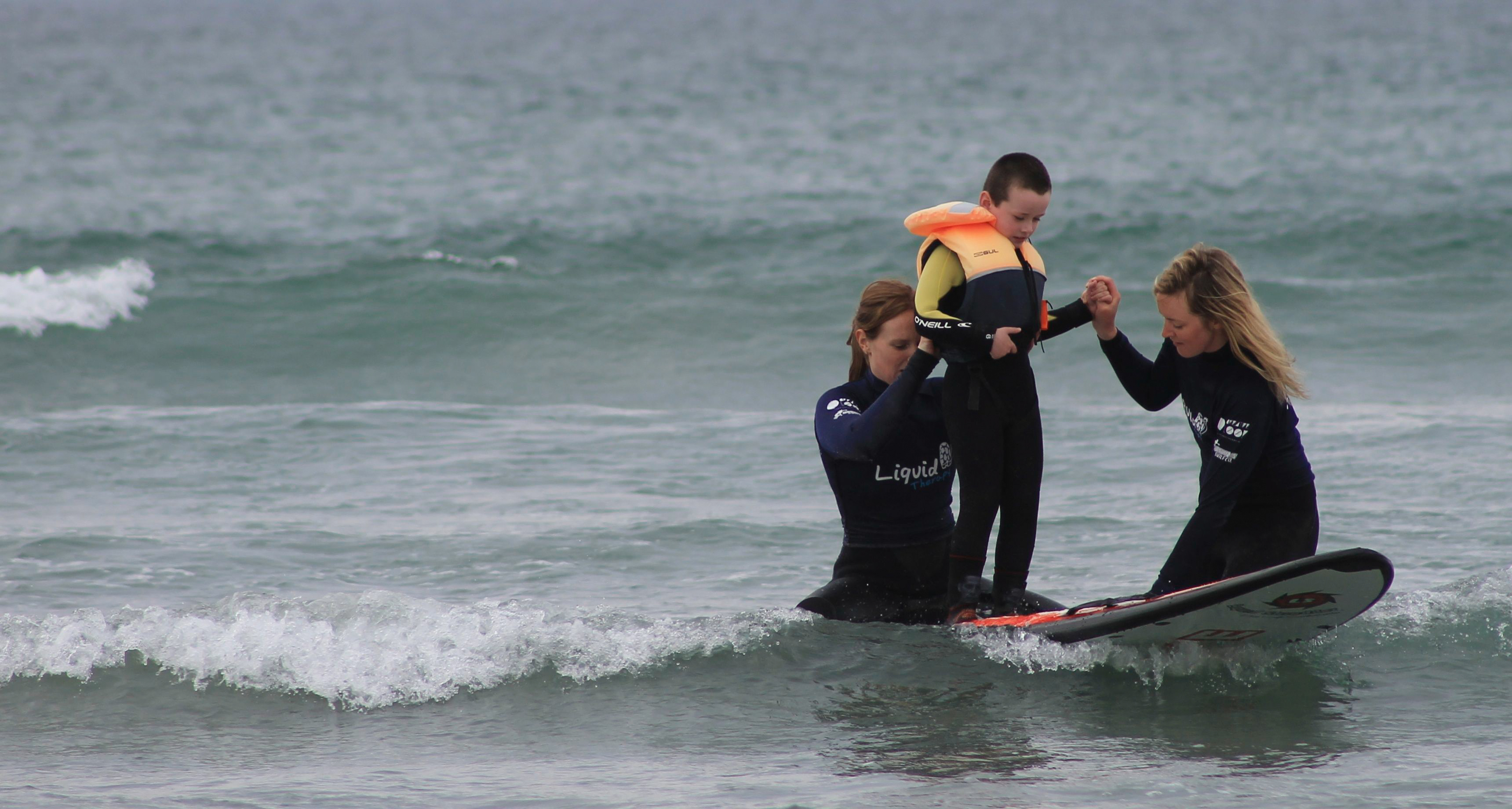 What are your current offerings (one-off sessions, surfcamps…)? Are these based on what you find works best for kids, families, volunteers or a bit of everything?
What are your current offerings (one-off sessions, surfcamps…)? Are these based on what you find works best for kids, families, volunteers or a bit of everything?
We mainly do one to one once-off sessions, and we have these big days called AS Open. Volunteers and families save the date for it and it’s always huge in numbers and stoke!
This year we’re launching two Surf Weeks with two local surf schools and will bring the surfers out daily for five days.
We also offer “Pool to ocean”, for children who may initially find the ocean environment overwhelming. And at the other end of the daring scale, we have “Liquid boardriders”: a pilot program for Liquid Therapy’s existing surfers who are confident in catching their own waves and do not need individual supervision.
Are these based on what you find works best for kids, families, volunteers or a bit of everything?
During our time delivering ocean and surf therapy we have seen the progression of surfing ability and have also met families that have required alternative approaches to facilitating surf and water activities. Each of our programs is designed to enable, empower and showcase the abilities of each person.
 Do you receive help from public institutions?
Do you receive help from public institutions?
The problem is that there’s not a list you can check and apply to every item. You have to find out and they looks for specific things. When I started out, I didn’t know anything about writing grant proposals or what criteria these institutions were based on to grant aid to a project.
Over time I’ve learned about different opportunities and I also figured out that you have to start small, locally, and you can move on from there. So for example, we first applied for city council help, and looking at our proposal and knowing that we did a good job, they funded us. The next year we applied for a county grant and we got it, later for a national program, and so on. This one time I applied for a grant for the second time and I got it, while the first time around, four years earlier when we were starting, we’d been totally rejected –now we had all this experience and other grants backing our work, so they paid more attention to us.
Because of our good work with kids in the autism spectrum and because we’ve been trying to upskill surf-schools all over the country to be able to offer this themselves (which we’ve done by collaborating with local surf schools, where we train their staff and they lend us their equipment to deliver the sessions locally), the Irish Surf Association now wants us to publish a policy to standardise it –to make sure things are done properly as well as to encourage this kind of offering, which, at the end of the day, is profitable for surf schools, because they charge.
This kind of policy could then be extrapolated to other sports.
This is great! May I ask how much is available from public help (or some of the programs you’re aware of, or that have helped Liquid Therapy in the past)?
We receive and are supported by a very generous community both locally and regionally. Each year different families and community groups come together to raise funding for some of the different programs we provide. There is never any shortage of support when it comes to needing volunteers for some of our events too!
Do you also receive help from private institutions, brands, or individuals?
We do. For example we got an amazing grant from Guinness, the Arthur Guinness Award, which lasted for a whole year and allowed us to deliver sessions all across the country.
Our current beautiful website was made by a professional web designer who offered to do it for free.
To sum up a bit, what would you say is your main source of funding?
We really don’t have a main source. Each season provides its own opportunities and challenges!
What’s the typical volunteer profile at Liquid Therapy?
All our volunteers are experienced surfers or very keen water people. Because we’re all very confident in the water, we can have one to one sessions with kids and still play safely. I find that 1:1 is the best scenario for everyone involved, from the kid to the volunteer, because it allows for better rapport and clear and direct communication, resulting in a better learning experience that is fun and enjoyable.
Many people in general, not just these kids, are more comfortable on 1:1 than with a group; volunteers also feel they can connect better if they are on their own, getting full attention from the kid. That’s why we really want people who are confident in the water and we can pair with a kid by themselves.
In terms of the selection process, I always know prospective volunteers personally from town or I know someone who knows them, so they can tell me about them as a person and their ability in the water. We systematically ask for two references (contact number for someone who can vouch for them) and a CV, to understand what related experience they’ve had, especially now that we’ve grown and we have different roles –it’s no longer just about being in the water with a kid.
When a new volunteer doesn’t have experience with kids with autism or surfing, we pair them with someone more experienced. Eventually, when they feel comfortable and I’ve seen them a few times with different kids, they can move on to taking a kid out surfing on 1:1 basis.
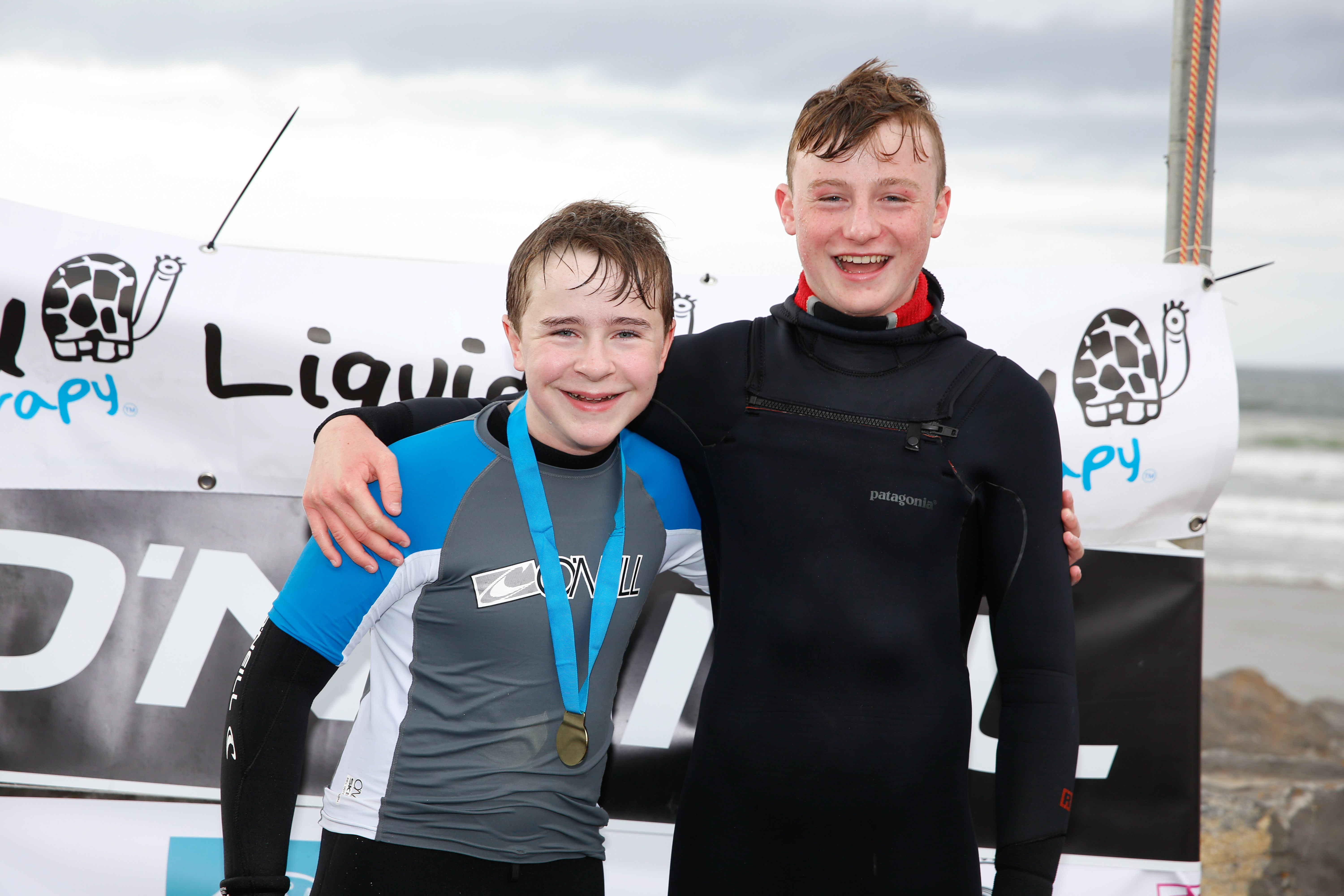 What do volunteers get out of helping out?
What do volunteers get out of helping out?
Personally, for me volunteering isn’t exactly selfless, because it makes me feel very good! So I know I’m helping and having a positive impact on someone’s life, but also on mine.
For a lot of people, just getting to spend time in Bundoran and being in the water giving back to the community in the summertime is great. The initial motivation to volunteer at Liquid Therapy might be different for every person, but at the end of the day, every volunteer feels it is very rewarding. You are in the water and see kids with behavioural problems or at the end of the spectrum relax, have fun and learn to surf so quickly that it doesn’t feel like an effort to help out.
What do you struggle with year after year?
Uncertainty, whether it’s financial or being able to offer the service. I like doing things well done and I tend to worry about not being able to deliver what I envision. But it always works out, the kids are happy, the families are happy, the volunteers are happy. I’m learning to let go, be less of a control freak and to trust the team.
Before I used to worry about having enough volunteers, but now that we’ve grown, we have a big pool of volunteers and there’s always enough people available to cover our regular mid-week sessions.
Do you know of any organization in Spain with similar goals and actions? Have you been in touch / Do you collaborate? How?
Yes, there are a few organizations in Europe offering surf therapy and we all follow each other on social networks, for instance Kind surf (they have an amazing website!) and Disfrutar el mar in Spain or Associaçao portuguesa de surf adaptado (SurfAddict) in Portugal.
We’ve been in touch but don’t have regular meet-ups or so, because at the end of the day, we work locally and what we do works for us. We look at each other’s posts and, for example, I recently saw pictures of a little trophy for participants that SurfAddict has used and I loved it. I liked those trophies better than our medals, so I contacted them and got the contact info of their provider. We’ve already worked on our own trophies’ design will use them this year. I can’t wait, they’re so cool!
We’ve been using balancing or medicinal balls to place surfboards on top and practice outside the water. Some other organizations saw it, liked the idea and now use them too. It works great that way and there doesn’t seem to be a need for more structured exchange at the moment.
Plans for the future?
We’re creating a policy and network for anyone in country to be able to do this in the future. To empower surf schools to deliver it, which is already happening. When delivered by a surf school, families usually pay, so it’s in the interest of surf schools to get trained and confident in offering surf therapy, and it is in the interest of families since there currently aren’t enough opportunities.
The vision is that Irish Surf Association will manage this in the future.
The future for Liquid therapy: Enjoy the journey and have fun with it.
For me, it’s my Creative outlet, it makes me feel alive. I can’t paint or make videos, but I can do this.
Anything else you’d like to add?
Whatever your sport or your area, just be out there and be open, don’t be afraid to ask. If you’re interested in delivering or offering, put yourself out there. You’ll find interest both in helping out and people needing the service. If your family needs this and you are interested in a certain sport or activity, ask for support in that area: you’re likely to find it.
Thank you very much for your time. Stay strong and keep up the good work!
* * *
Fortunately, an increasing number of both nonprofit and private initiatives are becoming available to help people lead more normal lives, such as Sólo surf, who have been pioneering efforts on the Iberian peninsula to benefit participants with autism since 2006, and Kind surf, who serve at risk youth.
We encourage you to research organizations in your area, whether you’d like to give them a hand as a volunteer or enroll a loved one as a participant. Or, if there are no such organizations near you but you’re keen to contribute, as Tom says, share your ideas and you’ll likely find support.
Images courtesy of Liquid Therapy
By Marta Piqueras-Brunet
